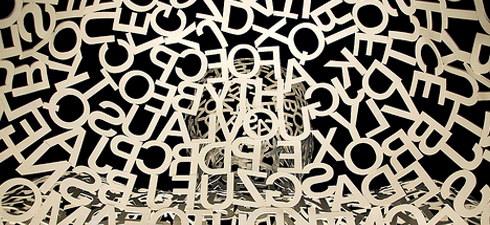"Oui, monsieur, you are quite right. We have a gift for languages!" Back in 2006, I was in Brussels for a seminar on Romania's role in the EU when I had a chance encounter with a Romanian taxi driver. Sitting in the back of the cab on the way to the conference centre, I was mulling over what I would say at the day's meeting when I decided to ask my fellow countryman for his opinion.
— What do you think is our strong point? What do we do better than other countries? I asked.
— I'd say agriculture and tourism, or maybe programming, number crunching and techno babble.
Suddenly, I had a flash of inspiration:
— Monsieur, translators and interpreters. That's what we can give to Europe!
This appeared to puzzle my new friend at the wheel, even though he had a notice in his cab which said: "English and Spanish spoken."
Multilingualism, a Romanian specialty
In Romania, languages are given the prestige they deserve. I have always had the impression that in Bucharest the percentage of natives who can give directions in English (or French or German) is far higher than in Sofia, Prague or Budapest. Of course, when you raise the question of ability in foreign languages, everyone admires the Scandinavians who all speak fluent German or English. But in southern Europe, things are a bit more complicated. In recent years, the French have had to implement costly campaigns to encourage people to learn English. The Italians are so captivated by the beauty of their own language they rarely want to speak anything else. At the same time, the Spanish, who have to cope with the difficulty of learning Castilian or Catalan and the burden of communicating with large numbers of English and French speaking tourists, tend to do slightly better.
At the seminar, when the head of the European Commission delegation in Romania, Jonathan Scheele asked how Romania could effectively contribute to European development, I launched into the spiel I had hit upon in the taxi. "Until recently, we used to be the tailors of Europe — and there was no shame in that — but I believe we have another gift that's even more useful. Why don't we establish ourselves as the translators and interpreters of Europe? Romanians are particularly good at languages. We are always mocking heads of state for their lack of linguistic ability in a way that just doesn't happen anywhere else." But it is part of the natural order of things in our country, where ignorance of foreign languages is thought to be shameful. In the West, no one seems to care. People from dominant cultures do not feel the need to learn their neighbours' languages.
As fate would have it...
So it was perhaps not surprising that when Romania entered the EU in 2007, the first Romanian commissioner, Leonard Orban, took on the newly instituted portfolio of multilinguism. At the time, many people in Romania were unhappy with the appointment, which they felt amounted to a condescending gesture "to a second division country." But Orban proved them wrong. In close to three years in office, he did much raise awareness of the importance of linguistic diversity. For example, he was responsible for adding Irish Gaelic to the official list of EU languages, at a time when the Catalans, Corsicans and Basques also petitioned for recognition. Right from the start, he devoted himself to the huge tasks of structuring Europe's language services, and managing the world's largest organization of translators and interpreters.
As the first commissioner to take charge of the portfolio, he also defined the theme for the future EU strategy — languages and the promotion of economic competition — with the launch of Erasmus style exchange programmes for companies. Even the British were forced to acknowledge that their corporate revenues and productivity had suffered from a decades-old policy of neglecting foreign languages. At the same time, the French finally woke up to the need for greater linguistic proficiency in business, and launched a highly humourous campaign to encourage people to learn English. And while all these projects were in progress, Orban who represented a diffident new member state, unschooled in Brussels politics, quietly acquired a mastery of the bureaucratic language of European democracy.
Was this article useful? If so we are delighted!
It is freely available because we believe that the right to free and independent information is essential for democracy. But this right is not guaranteed forever, and independence comes at a cost. We need your support in order to continue publishing independent, multilingual news for all Europeans.
Discover our subscription offers and their exclusive benefits and become a member of our community now!












